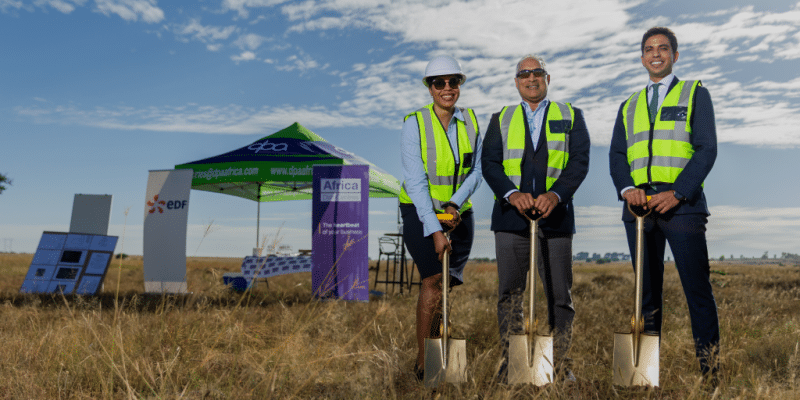In the Western Cape province of South Africa, Distributed Power Africa (DPA) is starting work on a 12 MWp photovoltaic solar power plant. It will supply clean electricity to the Africa Data Centres (ADAC) data centre in Cape Town.
The challenge of decarbonising data centres is first and foremost one of energy. Africa Data Centres (ADAC) has clearly grasped the importance of this criterion, which is becoming increasingly important to industry, in order to begin decarbonising its facilities in South Africa. The company’s managers recently took part in a ceremony to mark the start of work on a photovoltaic solar power plant to supply its CPT1 data centre in Cape Town.
The project is being carried out in the Free State province by the South African subsidiary of Distributed Power Africa (DPA SA), which is 50%-owned by the Électricité de France (EDF) group. The solar farm, which it will lease to ADAC for 20 years, will have a capacity of 12 MWp.
Read also- Mining: in South Africa, Anglo American speeds up its energy transition with EDF
Its construction “is part of a wider shift in the sector towards innovative and environmentally-friendly practices. The strategic use of solar energy illustrates the role of technology in developing innovative solutions to energy challenges and sustainability,” explains Hardy Pemhiwa, President and CEO of Cassava Technologies Group, Adac’s parent company.
Covering an area of 1,800 m2, the CPT1 data centre has a capacity of 5.5 MW. After CPT1, Adac intends to pursue its strategy by decarbonising its JHB1 and JHB2 IT infrastructures (located in Johannesburg), “once the transmission agreements with the municipalities concerned have been concluded”, says the company. As a reminder. Worldwide, data centres consume 2% of the electricity produced. At the same time, these facilities are responsible for 2% of the world’s greenhouse gas emissions.
Jean Marie Takouleu







